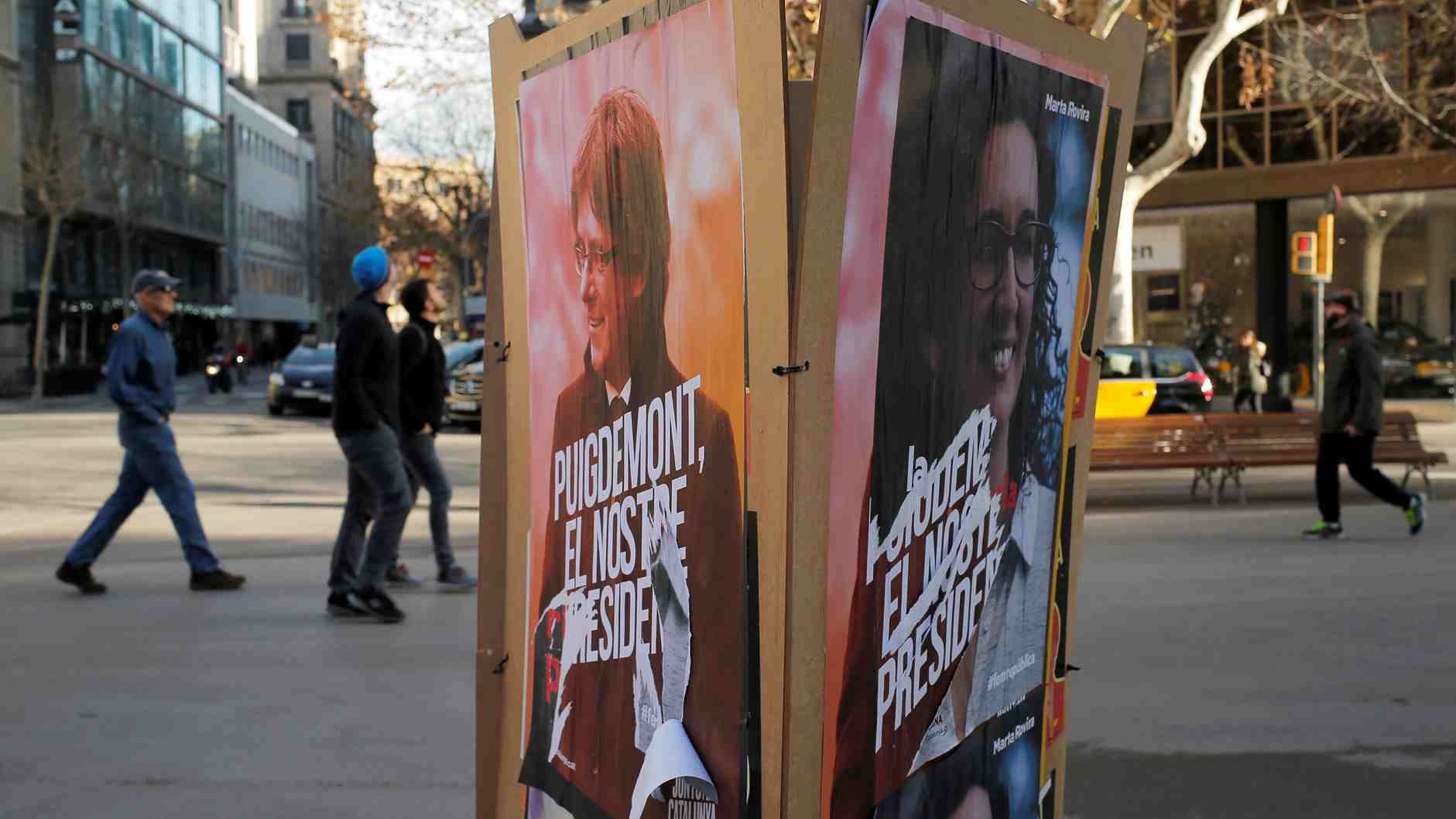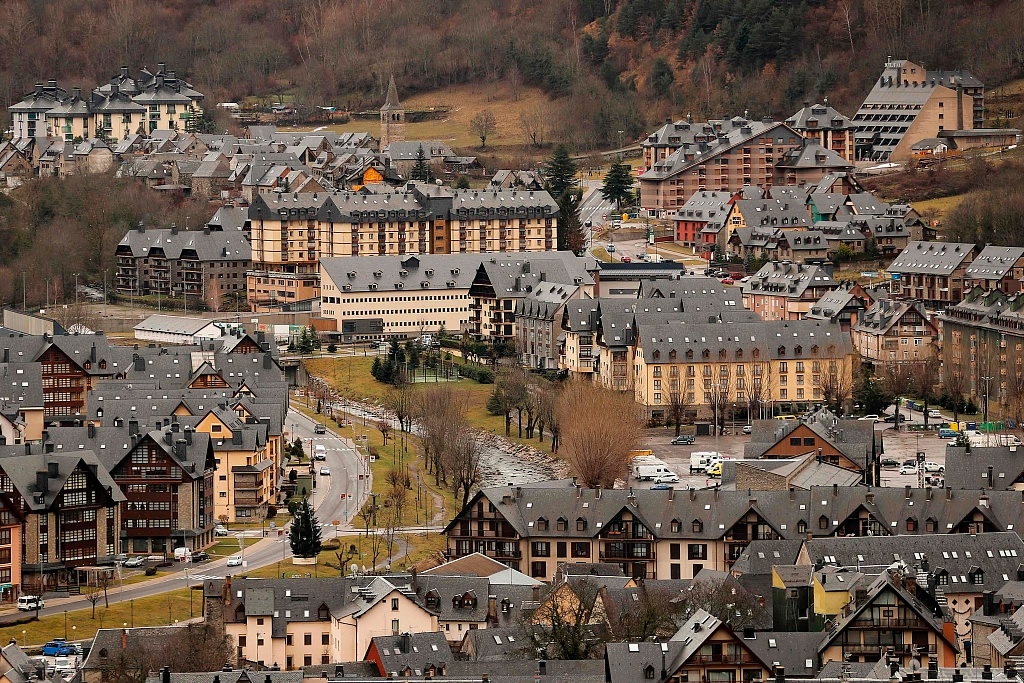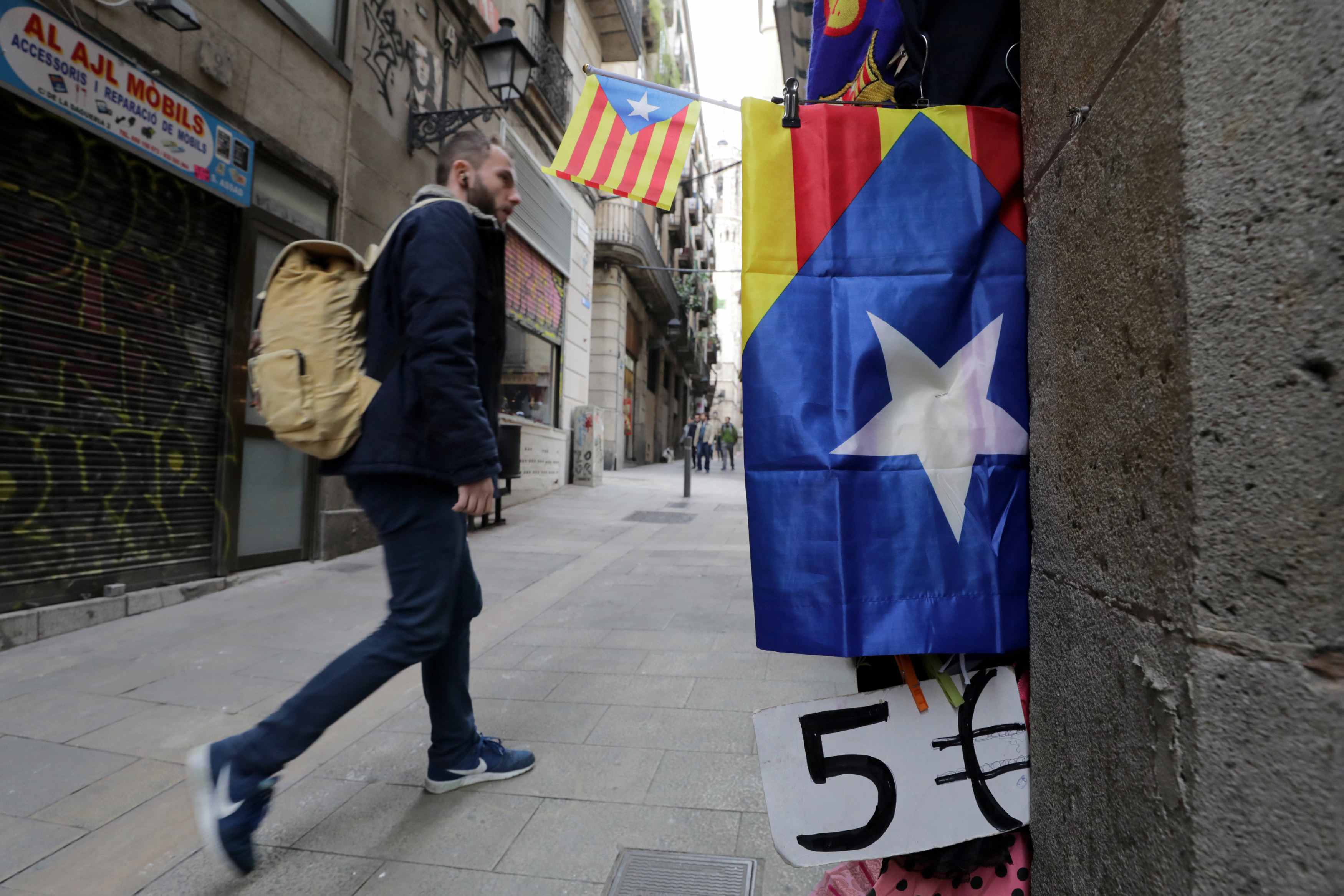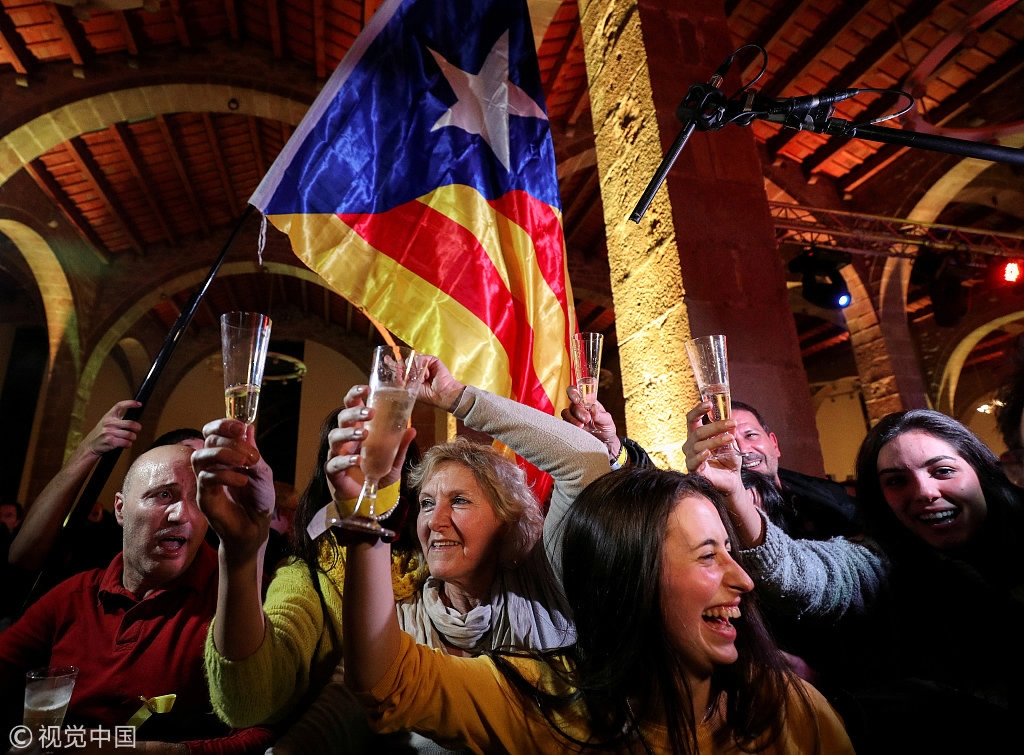
Opinions
14:06, 23-Dec-2017
Opinion: An unpredictable future for Catalonia and Spain
Guest commentary by Jiang Shixue

Catalonia is back in the limelight. In a snap regional election on December 21, the three separatist parties won a total of 70 seats, giving the pro-independence groups a majority in the 135-seat regional parliament.
The pro-unity Citizens Party was the single biggest winner, but only acquired 36 seats.
Even before the election, pro-independence parties and their supporters saw the election's results as a de facto plebiscite on independence. Undoubtedly, it is a heavy blow to Spanish Prime Minister Mariano Rajoy’s hope to stabilize the situation as well as to defuse the constitutional crisis in the troubled region.
Indivisible unity vs. self-determination

A general view of Vielha e Mijaran in the Aran Valley in northwest Catalonia, December 11, 2017. /VCG Photo
A general view of Vielha e Mijaran in the Aran Valley in northwest Catalonia, December 11, 2017. /VCG Photo
The root of Catalonia’s desire for independence goes back to the second half of the 19th century. The first political party supporting independence was born in the 1920s, but had limited supporters.
After Francisco Franco's death in 1975, the country transitioned back to a democracy, and a new constitution was adopted. It stipulated that the "indivisible unity of the Spanish Nation" should not be violated, but acknowledged at the same time that Catalonia could enjoy "the right to autonomy of the nationalities and regions which form it."
Independence parties and their supporters, however, argued that it was incompatible with Catalonia's self-determination.
In January 2013, the Declaration of Sovereignty and of the Right to Decide of the Catalan People was adopted by the parliament of Catalonia. The declaration stated that "the Catalan people have, for reasons of democratic legitimacy, the nature of a sovereign political and legal subject." It also declared that Catalans had the right to decide their own political future. The Spanish Constitutional Court ruled in March 2014 that the declaration was unconstitutional.
An illegal referendum

Catalan separatist "Estelada" flags fly along with tourist merchandise at a shop
in Barcelona, December 22, 2017. /Reuters Photo
Catalan separatist "Estelada" flags fly along with tourist merchandise at a shop in Barcelona, December 22, 2017. /Reuters Photo
But enthusiasm for independence did not stop there. Carles Puigdemont, who became president of Catalonia on January 12, 2016, announced that a referendum on Catalan independence would take place on October 1, 2017.
It is interesting to note that Puigdemont, when taking the oath of office, omitted the oath of loyalty to the Spanish King and the Spanish constitution, the first Catalan president to behave in such a defiant way.
Needless to say, the Spanish government declared the October referendum illegal and tried to stop the vote from happening. Despite their efforts, turnout was 43 percent, with 90 percent of voters supporting independence.
On October 27, 2017, the Catalan Parliament approved a resolution declaring independence from Spain by 70 votes in favor and 10 against. The anti-independence parties abstained in protest.
In response, the Spanish Senate granted Prime Minister Rajoy the power to implement Article 155 of the constitution, allowing him to remove the Catalan government, install a technocratic government and call new regional elections.
According the Article 155, if an autonomous region were not fulfilling the duties imposed upon it under the Constitution or other laws, or were to act in a manner that gravely attacked the general interest of Spain, the government may adopt necessary measures to oblige it to forcibly comply with the said duties or to protect the aforementioned general interest.
Towards an unpredictable future

People react to results in Catalonia's regional elections at a gathering of the Catalan National Assembly (ANC) in Barcelona, Spain, December 21, 2017. /VCG Photo
People react to results in Catalonia's regional elections at a gathering of the Catalan National Assembly (ANC) in Barcelona, Spain, December 21, 2017. /VCG Photo
The parliamentary election signifies an unpredictable future for the situation there and the following two outcomes are likely:
First, the independence movement will continue to move forward. In the near future, the pro-independence parties and their supporters will try their best to nourish conditions for another referendum or a similar vote. The Spanish government in Madrid will not allow the constitution to be breached. As a result, the relationship between Catalonia and Madrid will not be improved. This kind of confrontation will persist for the years ahead.
Second, due to the persistent deadlock, the investment environment in both Catalonia and Spain as a whole will suffer greatly. As a matter of fact, the reputation of the European Union has already been damaged. The exchange rate of the euro witnessed a setback when the results of the Catalan parliamentary election were announced.
(The author is a professor of Shanghai University. The article reflects the author’s opinion, not necessarily the views of CGTN.)

SITEMAP
Copyright © 2018 CGTN. Beijing ICP prepared NO.16065310-3
Copyright © 2018 CGTN. Beijing ICP prepared NO.16065310-3